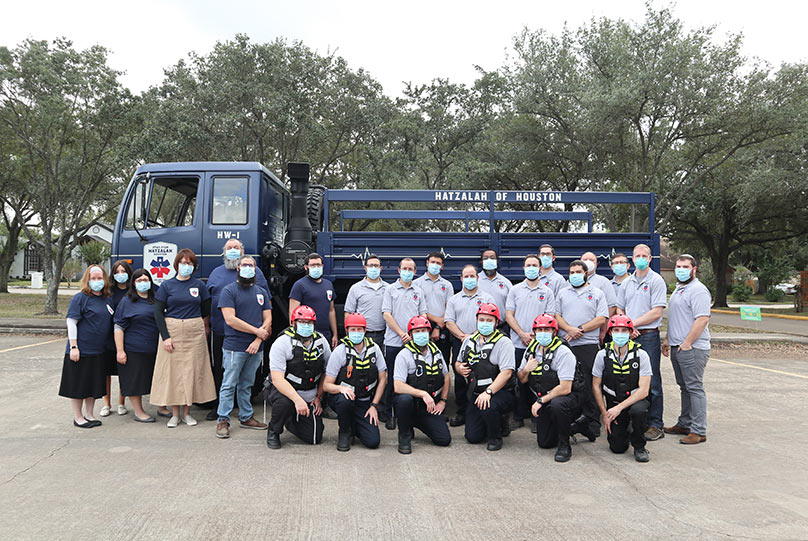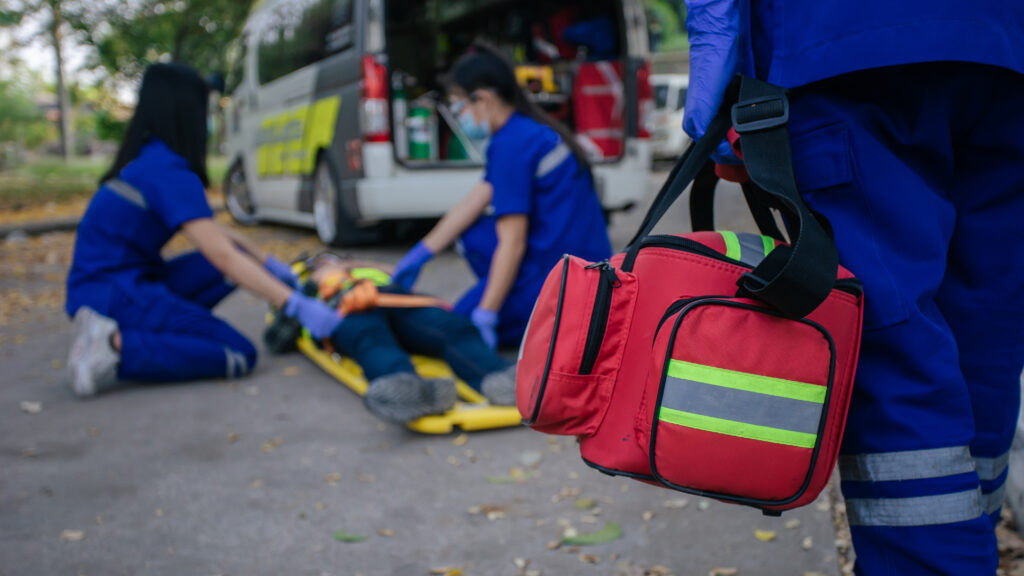Introduction
Emergency Medical Services (EMS) play a crucial role in saving lives and providing timely medical assistance to individuals in need. In a bustling city like Houston, where accidents and emergencies can happen at any given moment, having a robust and efficient EMS system is of utmost importance. In this article, we will delve into the various aspects of emergency medical services in Houston, highlighting their significance, the 24-hour medical response provided by trained emergency responders, the role of volunteer organizations such as the Jewish Volunteer Medical Service, and the overall impact on strengthening the chain of survival.
The Importance of Emergency Medical Services in Houston
Houston, Texas, with its large population and diverse community, requires an effective emergency medical service system to ensure that individuals receive timely and appropriate medical care. The city's emergency medical services form an integral part of the healthcare infrastructure, working hand in hand with hospitals and other healthcare providers to save lives and provide critical care.
The Role of Trained Emergency Responders
One of the key components of Houston's emergency medical services is the presence of highly trained emergency responders. These dedicated professionals, known as Emergency Medical Technicians (EMTs), undergo rigorous training to handle various medical emergencies. They are equipped with the necessary skills and knowledge to assess patients' conditions accurately and provide immediate life-saving interventions.
The Availability of 24-Hour Medical Response
Emergencies don't adhere to a strict schedule; they can strike at any time, day or night. That's why it is crucial for Houston's EMS system to operate round-the-clock, ensuring that help is available when needed most. With a 24-hour medical response system in place, individuals can have peace of mind knowing that assistance is just a phone call away.
The Role of Volunteer Organizations
In addition to professional emergency responders, volunteer organizations also play a vital role in strengthening Houston's chain of survival. The Jewish Volunteer Medical Service (JVMS) is one such organization that provides valuable support during emergencies. Comprised of dedicated volunteers with medical backgrounds, the JVMS offers much-needed assistance during times of crisis, further enhancing the city's emergency medical services.
Strengthening the Chain of Survival: The Role of Emergency Medical Services in Houston
Rapid Response and Early Intervention
One of the primary Free Medical Response Assistance in Houston goals of Houston's emergency medical services is to provide rapid response and early intervention. Time is critical in emergencies, and every second counts when it comes to saving lives. By having a well-coordinated EMS system in place, emergency responders can quickly reach the scene, assess the situation, and initiate appropriate medical interventions without delay.
Efficient Communication and Coordination
Effective communication and coordination are essential for the seamless functioning of Houston's emergency medical services. Emergency responders need to be able to communicate with dispatch centers, hospitals, and other healthcare providers to relay vital information accurately. This ensures that patients receive the necessary care from the moment help is requested until they reach a healthcare facility.
Training and Continuous Education
To maintain high standards of care, emergency medical technicians undergo extensive training and continuous education throughout their careers. These training programs ensure that they are up to date with the latest advancements in medical care, techniques, and protocols. By investing in their professional development, Houston's EMS system can provide optimal care to individuals in need.
Pre-hospital Care and Transport
Emergency medical services extend beyond immediate on-scene interventions. They also encompass pre-hospital care and transport. Once stabilized at the scene, patients may require transportation to a hospital for further treatment. Houston's EMS system ensures that patients are transported safely and efficiently using specialized vehicles equipped with life-saving equipment.
Collaboration with Other Healthcare Providers
Collaboration between emergency medical services and other healthcare providers is crucial for delivering comprehensive care. Houston's EMS system works hand in hand with hospitals, trauma centers, and other medical facilities to ensure a smooth transition of care. This collaboration allows for seamless continuity of treatment, improving patient outcomes.
FAQs about Emergency Medical Services in Houston
What is the role of emergency medical services in Houston?
Emergency medical services in Houston play a crucial role in providing timely and appropriate medical care to individuals during emergencies. They aim to save lives and strengthen the chain of survival.


Is there a 24-hour medical response available in Houston?
Yes, Houston has a 24-hour medical response system in place to ensure that help is available round-the-clock.
Are there volunteer opportunities in the field of emergency medical services in Houston?
Yes, individuals can volunteer with organizations like the Jewish Volunteer Medical Service (JVMS) to contribute to emergency medical services in Houston.
What qualifications do emergency medical technicians (EMTs) have?
EMTs undergo rigorous training programs to obtain the necessary qualifications and skills required to handle various medical emergencies.
How does Houston's EMS system collaborate with hospitals and other healthcare providers?
Houston's EMS system collaborates closely with hospitals, trauma centers, and other healthcare providers to ensure seamless coordination and continuity of care.
What initiatives are taken to continuously improve emergency medical services in Houston?
Continuous education programs and ongoing training initiatives are implemented to enhance the skills and knowledge of emergency responders, ensuring high-quality care for all residents of Houston.
Conclusion
Emergency Medical Services play a vital role in strengthening the chain of survival by providing timely and appropriate medical assistance during emergencies. In a dynamic city like Houston, where accidents can happen at any time, having a robust EMS system is paramount. With trained emergency responders, 24-hour medical response systems, and the support of volunteer organizations such as the Jewish Volunteer Medical Service, Houston's emergency medical services continue to save lives and make a significant impact on the well-being of its residents. By prioritizing efficient communication, continuous education, and collaboration with other healthcare providers, Houston's EMS system ensures that individuals in need receive optimal care throughout the entire emergency medical response process.